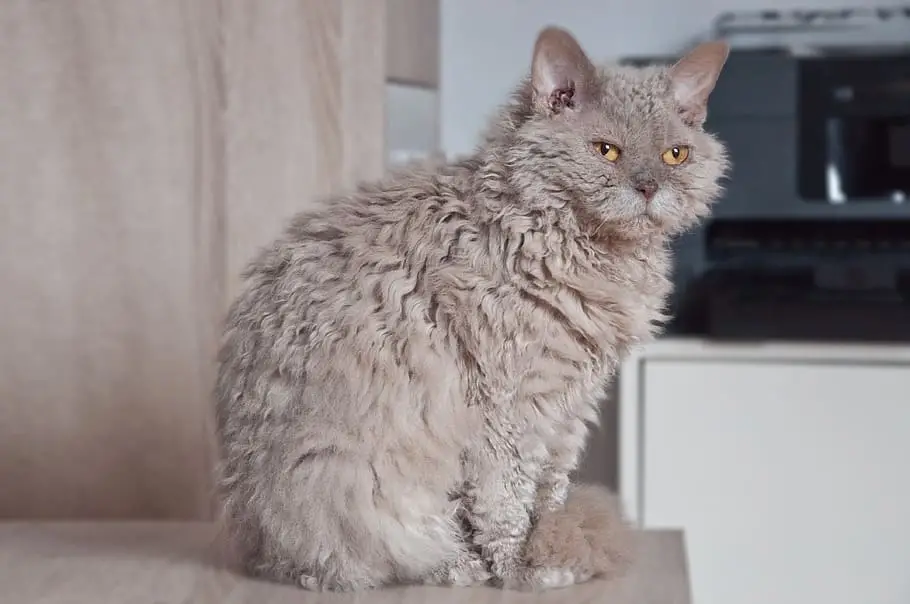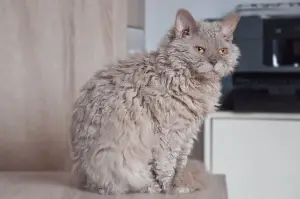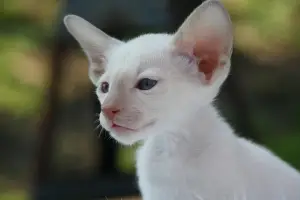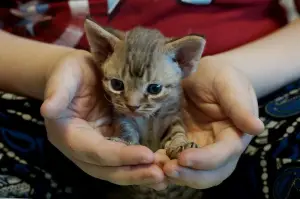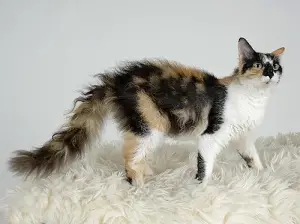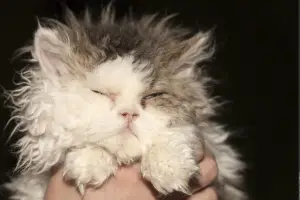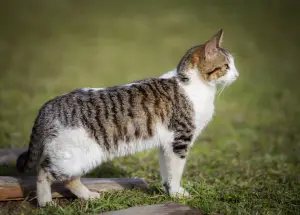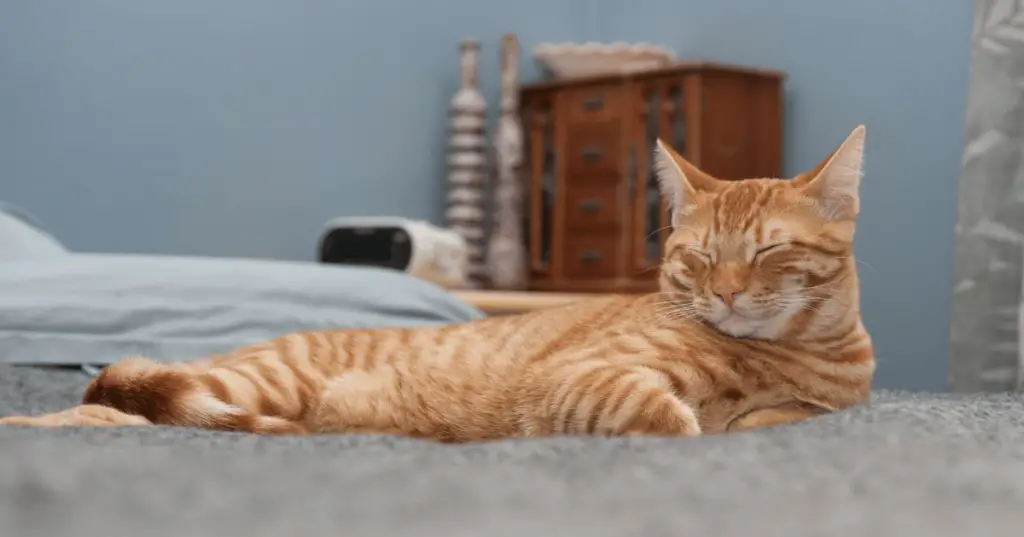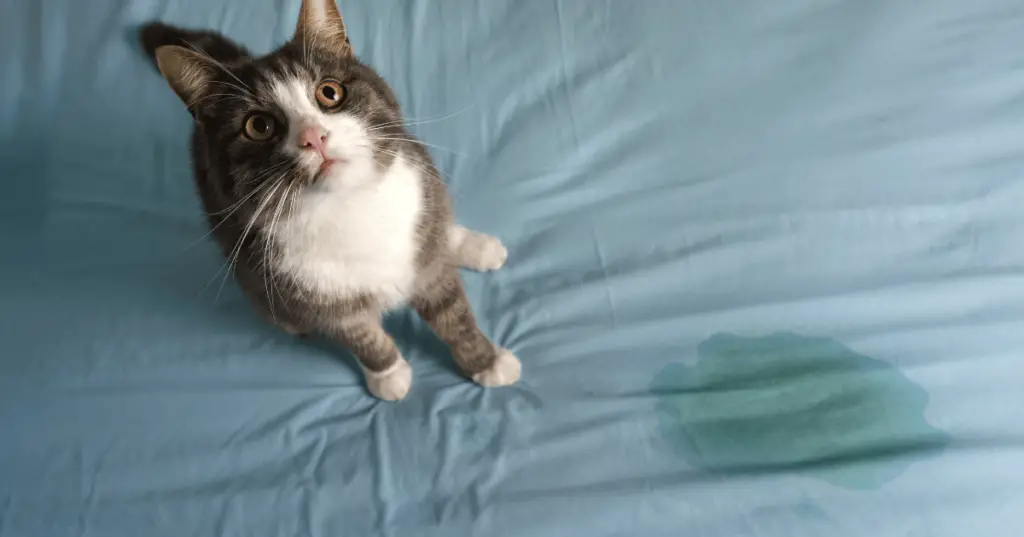Top Curly Haired Cat Breeds
Just like some people have curly hair, certain cats have it too, all because of their genes.
Dr. Jamie Whittenburg, from King’s gate Animal Hospital in Lubbock, Texas, explains, “Curly hair in cats comes from a genetic change. It’s not very common among cats, but breeders choose cats with this trait to keep it going.”
Curly-haired cats have different kinds of curls. Some have long, flowy curls, while others have shorter, tighter ones. Some of them even have thin fur, making them look a bit different.
Top Curly Haired Cat Breeds: Characteristics, Lifespan, Coat Colors, and Weight
1. Cornish Rex
- Lifespan: The Cornish Rex typically lives between 10 and 15 years.
- Coat Colors: Cornish Rex cats come in a variety of colors and patterns, including solid, tabby, tortoiseshell, and bi-color.
- Weight: Adult Cornish Rex cats generally weigh between 5 and 9 pounds.
The Cornish Rex is a unique and charming breed known for its soft, wavy coat that resembles lamb’s wool. These cats have a slender body, large ears, and expressive eyes that give them a distinctive appearance. Cornish Rex cats are highly energetic and playful, often seeking out attention from their human companions. They are also known to be affectionate and social, making them great pets for families and individuals alike.
2. Devon Rex
- Lifespan: The Devon Rex typically lives between 10 and 15 years.
- Coat Colors: Devon Rex cats come in various colors and patterns, including solid, tabby, tortoiseshell, and bi-color.
- Weight: Adult Devon Rex cats usually weigh between 5 and 10 pounds.
Similar to the Cornish Rex, the Devon Rex boasts a curly coat, albeit with a slightly different texture. Their coat is more wiry and shorter, giving them a unique appearance. Devon Rex cats are renowned for their playful and mischievous demeanor. They enjoy interactive play and are typically found perched on high surfaces observing their surroundings.
3. LaPerm
- Lifespan: The LaPerm typically lives between 10 and 15 years.
- Coat Colors: LaPerm cats come in a wide range of colors and patterns, including solid, tabby, tortoiseshell, and bi-color.
- Weight: Adult LaPerm cats generally weigh between 6 and 10 pounds.
The LaPerm is easily recognizable by its curly coat, which can vary in length and texture. This breed is affectionate, loving, and enjoys being in the company of its human family members. LaPerm cats are known for their intelligence and adaptability, making them suitable for various living situations.
4. Selkirk Rex
- Lifespan: The Selkirk Rex typically lives between 10 and 15 years.
- Coat Colors: Selkirk Rex cats come in a variety of colors and patterns, including solid, tabby, tortoiseshell, and bi-color.
- Weight: Adult Selkirk Rex cats generally weigh between 8 and 16 pounds.
The Selkirk Rex stands out for its plush and curly coat, often described as velvety to the touch. Unlike other curly haired breeds, the Selkirk Rex has a larger and more muscular build. These cats are known for their laid-back and easygoing personalities, getting along well with children and other pets.
5. American Wirehair
- Lifespan: The American Wirehair typically lives between 12 and 16 years.
- Coat Colors: American Wirehair cats come in a variety of colors and patterns, including solid, tabby, tortoiseshell, and bi-color.
- Weight: Adult American Wirehair cats mainly weigh between 6 and 13 pounds.
The American Wirehair has a unique coat characterized by its wiry texture and crimped appearance. While not as curly as other breeds, the American Wirehair still stands out for its distinct coat. These cats are known for their friendly and affectionate nature, forming strong bonds with their owners.
Each of these curly hair cat breeds brings its own unique charm and personality traits, making them beloved pets for cat lovers around the world.
Health Considerations for Curly Haired Cats
When considering the health of curly haired cats, it’s essential to be mindful of certain issues that may affect them. While these breeds are generally healthy, they can be susceptible to specific conditions. Here’s what to keep in mind:
Skin Sensitivities:
Curly haired cats may experience skin sensitivities and allergies due to the unique texture of their coats. The curls can trap dirt and debris close to the skin, leading to potential irritation. Watch out for signs of skin irritation, such as redness or itching, and consult a veterinarian if you notice any concerns.
Respiratory Issues:
Some curly haired breeds, like the Devon Rex, may have a higher risk of respiratory problems, such as asthma. Their genetic makeup can make them more prone to these issues. Pay attention to your cat’s breathing patterns and seek veterinary care if you notice any signs of respiratory distress, such as wheezing or difficulty breathing.
Dental Health:
All cats, including curly haired breeds, require regular dental care to maintain good oral health. Establish a dental care routine for your cat, including regular tooth brushing and providing dental treats or toys. This helps prevent dental issues like plaque buildup and gum disease.
Weight Management:
Curly haired cats, especially those with a larger build like the Selkirk Rex, may be prone to obesity if not given proper diet and exercise. Avoid overfeeding and monitor your cat’s weight closely. Modify their diet as necessary to keep them at a healthy weight. Regular exercise and playtime are also crucial for keeping them fit and healthy.
Genetic Conditions:
Certain curly haired breeds may have genetic predispositions to certain health conditions. When adopting a curly haired cat, inquire about their genetic health history. Consider genetic testing if recommended for the breed to screen for potential hereditary diseases or conditions. Being aware of any genetic predispositions can help you take proactive measures to ensure your cat’s health and well-being throughout their life.
Conclusion
Curly haired cats are a unique and delightful addition to any family. Whether you’re drawn to the playful nature of the Cornish Rex or the laid-back personality of the Selkirk Rex, there’s a curly haired breed to suit every lifestyle. By providing proper care, grooming, and veterinary attention, you can ensure your curly haired cat lives a happy and healthy life.

